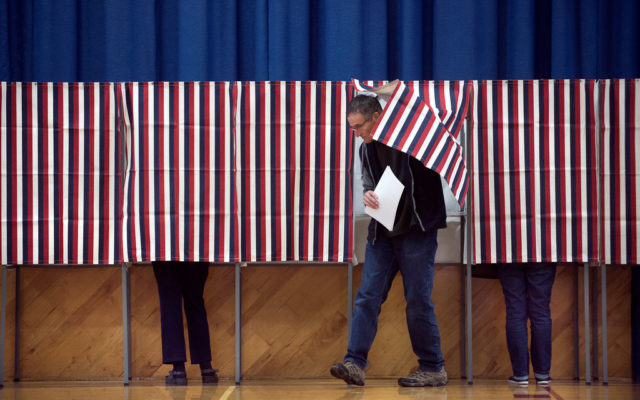
Maine can print ranked-choice presidential ballots, but no guarantee method will be use
Maine can print ranked-choice voting ballots for the November presidential election, the state’s high court ruled on Monday, but it has not finally decided whether the system will be used in a case over whether a Republican people’s veto effort will move forward.
The ruling from the Maine Supreme Judicial Court added a confusing twist to a long legal saga over the Maine Republican Party’s attempt to pull off the state’s third referendum on ranked-choice voting in four years. It was not the high court’s final ruling on that issue.
The ruling, released publicly on Tuesday, did not deal with whether Republicans had enough signatures to make the ballot. Instead, it was a technical decision putting a further delay on a lower court’s ruling that the Republican challenge made the ballot.
It means that Secretary of State Matt Dunlap’s office can proceed with printing ballots for the presidential election that use ranked-choice voting. A potential referendum on the law could appear on the ballot next year if the high court later determines that Republicans’ signature-gathering efforts were sufficient.
The decision does not guarantee that ranked-choice voting will be used in the November election. The high court still has to rule on legal arguments about the signature-gathering efforts, for which written arguments are due today.
Dunlap, a Democrat, said the ruling came at a hard deadline for beginning to print ballots, which must go to overseas and military voters by Sept. 19 under federal law. A first round of absentee ballots will be sent to voters across the state on Oct. 2 after a record flood of requests prompted by the coronavirus pandemic.
In its next decision, the high court could uphold Dunlap’s position and strike down the Republican challenge or it could side with Republicans and limit this year’s presidential election to first choices. If there is no new ruling before the election, ranked-choice voting will be used for the presidential race.
If the lower-court ruling is upheld, however, the law’s implementation will still be delayed pending the referendum. Since Election Day is less than 60 days away, that referendum would be scheduled for the next election, set to take place in June 2021. Since the referendum would still be pending, ranked-choice voting would not be used in the presidential race.
“We will continue to fight to ensure the voices of Mainers are heard,” Jason Savage, the executive director of the Maine Republican Party, said in a statement.
The Legislature passed a bill last year applying the state’s first-of-a-kind ranked-choice voting system to presidential elections. State Republicans who have opposed ranked-choice voting spent hundreds of thousands of dollars this spring to collect signatures for a people’s veto referendum on the law. Ranked-choice voting will be used in the U.S. Senate race regardless.
Dunlap, a Democrat, ruled in July that more than 11,000 of the signatures the party collected were invalid, leaving the petition short of the necessary 63,067 signatures for a referendum. The state party sued, arguing Dunlap had incorrectly thrown out some of the signatures.
A lower court previously ruled that Dunlap should credit the party for hundreds of signatures, citing a different interpretation of a law requiring petition circulators to be registered voters.
Three third party candidates — Howie Hawkins of the Green Party, Jo Jorgensen of the Libertarian Party and Rocky de la Fuente of the Alliance Party — qualified for the presidential ballot in Maine this year, along with President Donald Trump, a Republican, and former Vice President Joe Biden, the Democratic nominee.
BDN writer Michael Shepherd contributed to this report.